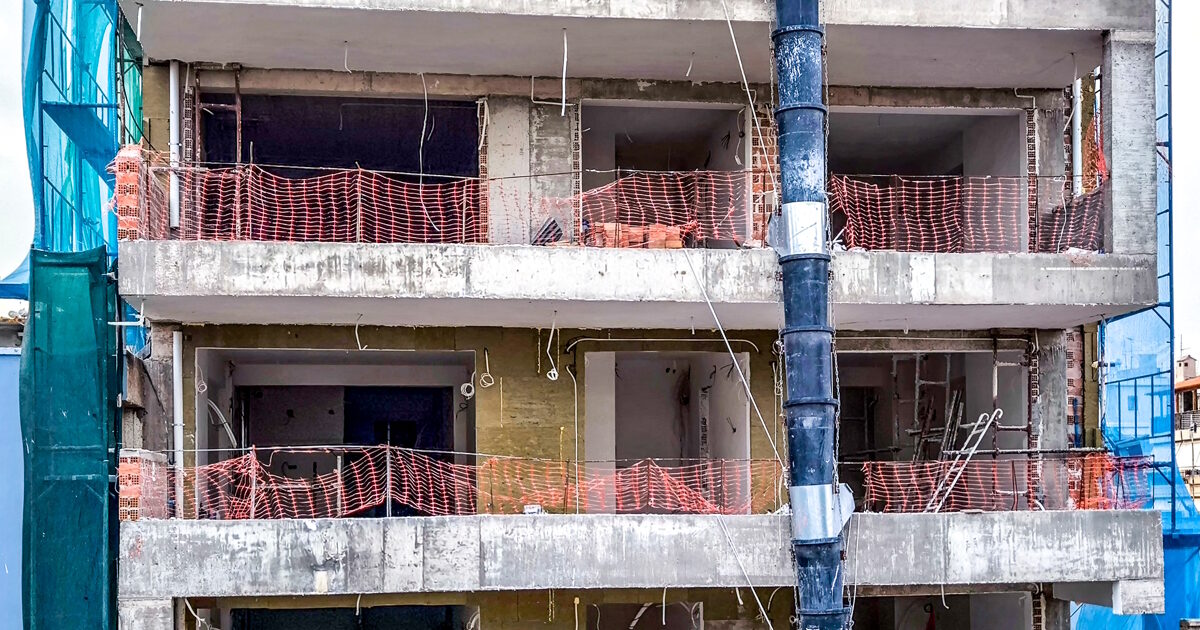Signed by the Minister of Environment and Energy, Stavros Papastavrou and the responsible deputy minister, Nikos Tagaras, the Presidential Decree that defines the procedure for approving a Special Environmentally Equivalent Urban Upgrade Plan (ESPIAP), to offset the use of incentives from the New Building Regulation (NOK) and other details for the implementation of building permits.
At the same time, the Joint Ministerial Decisions were signed by Stavros Papastavrou to determine a) the procedure for refunding taxes, levies, contributions and withholding of building permits using NOK incentives, which will be reviewed without delay and in priority over other applications and b) the specifications of the Special Plans for Urban Upgrading Environmental Equivalence (ESPIAP).
The CoE, examining the draft Presidential Decree for the approval of the Special Environmental Equivalent Urban Upgrade Plan (ESPIAP), gave the green light for its promotion, accepting almost all of the arrangements proposed in June by the Ministry of Environment and Energy.
This opinion is a key development in restarting the industry, paving the way for thousands of building permits and restoring confidence in the market.
What did the SC accept?
The Council of State deemed the Environmental Equivalent mechanism legal, recognizing it as a constitutionally founded and institutionally balanced solution for the continuation of building permits and the restoration of environmental balance. It is a mechanism that:
- allows the re-issuance and continuation of building permits that had been issued based on the incentives of the NOK, which were either judicially annulled, or challenged with an application for annulment, or included in financial instruments,
- provides for the payment of a fee in favor of the municipality and corresponding environmental upgrading actions at the level of the municipality or municipal unit,
- restores the injustice for those who had building permits for which construction work had started, but had been judicially challenged before 11.12.2024 and could not be subject to the exception of the decisions of the Plenary,
- allows the realization of important projects included in the TAA or the NSRF, strengthening the financial credit of the State,
- achieves a balance between environmental protection and the continuation of construction activity.
Specifically, the Court approved, in their entirety:
- all the measures of environmental equivalent proposed by the Ministry of the Interior (creation or remodeling of public spaces in the urban fabric, demolition of arbitrary or dangerous buildings, redevelopment interventions in environmentally and urbanistically degraded areas, cleaning and demarcation of streams, etc.), which are applied at the level of municipal unity, except in the cases of the metropolitan complexes of Attica and Thessaloniki that are applied at the municipality level.
- the process of drawing up an ESPIAP by the Ministry of Internal Affairs or by the relevant Municipality, with funding from the Green Fund or with a donation of the study, for the selection of the most appropriate environmental equivalent measures per municipal unit or municipality,
- the amount of the environmental equivalent, which is paid into a special account in the Deposits and Loans Fund and is available exclusively to the beneficiary municipality for the implementation of environmental actions.
- the terms and conditions by which it is proven that work has been started until 11.12.2024, and thus the right to build with the incentives of the NOK is preserved intact.
Environmental screening
As the only condition for the reissuance of the building permits that were either judicially annulled or challenged in the courts, despite the fact that the building work had started before 11.12.2024, the SC set the prior compliance with the environmental pre-control process. This is the first stage, in order to judge the consequences caused to the environment by the environmental equivalent measures and, by extension, whether or not a Strategic Environmental Impact Study (SEI) is required.
What constitutes commencement of construction work
Commencement of works means not only the realization of excavation works or, in the case of an addition, the realization of concreting works, but also the demolition of pre-existing buildings within the same property, as long as it is not earlier than six months from 11.12.2024.
In fact, the Supreme Court not only accepted as the start of work the carrying out of excavation work by the archaeological service until 11.12.2024, but expanded the relevant definition, adding also the case of carrying out test sections of the archaeological service.
The protection of the environment, the protected trust of the citizens and the safeguarding of the investment confidence of the country
According to the CoE, the mechanism of the environmental equivalent ensures the best possible balancing of the negative consequences from the use of NOK incentives and does not conflict with articles 4 par. 1, 20 par. 1, 26, 94 par. 1 and 95 of the Constitution.
As explicitly stated, the mechanism aims to protect the public interest, in the sense of preventing the creation of unfinished and abandoned buildings that burden public health, safety, aesthetics and also the economy, in combination with the weighted treatment of the consequences experienced by bona fide citizens who started building before 11.12.2024, under the then applicable legal framework, but found themselves subsequently faced with legal appeals and large financial burdens.
